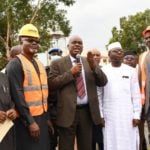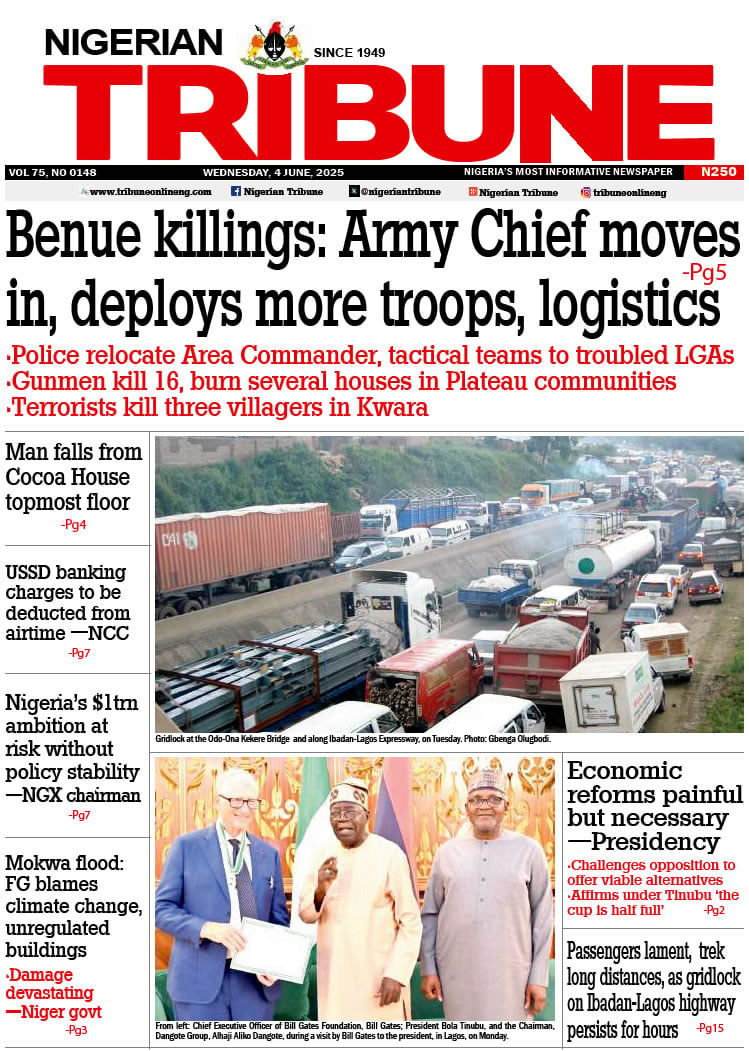Nigeria’s industrial growth is continuously threatened by unplanned shutdowns, rising equipment maintenance costs, and widespread machinery failure, engineering researcher Mr. Enoch Ogunnowo is emerging as one of the leading voices calling for a smarter, research-driven approach to solving the nation’s most persistent infrastructure challenges.
Currently pursuing a degree at McNeese State University in the United States, Mr. Enoch is receiving national attention for his pioneering work on the behavior of mechanical systems under extreme operational stress. His research, which blends scientific insight with practical engineering applications, is already making its way into Nigerian industrial practice, helping to reduce system failures, improve efficiency, and inform more sustainable design strategies. In this interview with Tribune Online , he explord the relevance of his work and what it holds for Nigeria’s future.
Mr. Enoch, there’s growing interest in your research work. What’s the central focus of what you’re doing right now?
My research focuses on the mechanical and thermal behavior of systems over time. In simpler terms, I study how things like heat, pressure, material fatigue, and repetitive stress affect machines—how components break down, how materials age, and how failures occur under specific conditions. The idea is to use this understanding to predict when and how equipment will fail and to design solutions that prevent it from happening. This has huge implications for industries like oil and gas, manufacturing, energy, and even agriculture—especially in countries like Nigeria, where industrial equipment is often subjected to harsh conditions and is expensive to replace.
What kind of problems in Nigeria does this help solve?
In Nigeria, we have a systemic issue with industrial equipment failures. Our power plants, factories, transportation systems, and processing facilities constantly face breakdowns because many of them operate under stress without any predictive maintenance or engineering insight into system performance. This leads to massive economic losses. Companies are spending heavily on replacing parts instead of understanding the root causes of failure. My research helps identify how and why these failures occur—before they happen. With this knowledge, industries can plan maintenance schedules, choose better materials, redesign components, and avoid expensive downtimes. Essentially, it’s a shift from “fix it when it breaks” to “design it so it doesn’t fail.”
We understand your research is already being used back home. How can this be integrated more?
Yes, I’ve received feedback from engineers, industrial analysts, and even lecturers in Nigeria who are beginning to implement the principles from my work. They’re using it to reassess failure risks in thermal systems and improve diagnostic tools in plant operations. But to integrate it more broadly, we need to strengthen the link between academia and industry. Too often, research sits in journals and never reaches the people who need it. Nigeria needs more partnerships where companies work directly with universities and researchers to build homegrown solutions. We also need policymakers to invest in R&D and encourage companies to use simulation tools, predictive modeling, and design validation processes—not just buy equipment and hope it lasts.
Integration starts with trust in local knowledge, trust in science, and trust in long-term thinking. I believe we’re getting there, but we need to be intentional. We should have local design and reliability teams applying these models to factories, plants, and public infrastructure projects nationwide.
What’s holding industries back from making that shift?
It’s mostly mindset and resource constraints. Many industries are used to running reactively, when a machine breaks, you call someone to fix it or replace the part. There’s little culture of investigating why the breakdown occurred or collecting performance data over time. Predictive thinking is still viewed as optional, not essential. Then there’s the issue of limited access to tools like high-performance simulation software or testing labs. These require investment, and some companies don’t see the value right away. But the cost of not investing is much higher—production delays, safety hazards, imported parts, and, in extreme cases, total system shutdowns.
It’s also about education. Engineering teams need more training in diagnostics, modeling, and systems thinking. These are the backbone of modern industrial operations globally. If we want to compete, we need to catch up fast.
Do you see any change happening?
I do. I see a growing awareness among young engineers and some progressive companies. The fact that people are reaching out to ask about how to apply research shows there’s momentum building. I’ve also noticed Nigerian engineers being more active in international conferences and technical forums, asking the right questions, presenting local case studies. That’s encouraging. But we can’t stop there. We need to institutionalize the culture of innovation and critical analysis. Let’s make research part of national development strategy, not just academic routine.
What’s your message to leaders in government and industry?
Start treating engineering as a strategic tool for nation-building. We need more than policies, we need practice as well. Let’s develop our own reliability standards, build national testing centers, and integrate local researchers into every major infrastructure project. There’s no reason we should be importing solutions for problems we can solve ourselves. We have the talent. My research is being developed in a U.S. academic setting, yes—but the problems I’m solving are rooted in Nigerian realities. That’s the mindset we need: to take global knowledge and apply it locally with purpose and pride.
What advice would you give to the next generation of Nigerian engineers who want to drive real change?
Don’t wait for perfect conditions or external validation. Start where you are. Use the tools you have. Nigerian engineers are some of the most resourceful people I’ve ever met. But we need to channel that creativity into building systems that last. Learn to ask “why” and “how,” not just “what.” Get into research. Question everything. Think beyond the job you’re doing today—think about the systems you can design for tomorrow. Every time you solve a technical problem, ask if it can be scaled. If it can, write it down. Publish it. Share it. We need to build a body of knowledge that reflects our own challenges and innovations. That’s how we stop being consumers of imported engineering and start being creators of our own solutions.






